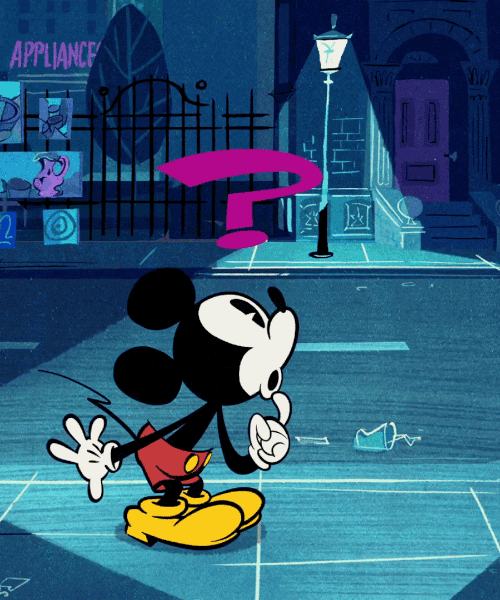
kenkuza / Shutterstock.com
If you’re a high school student, your mailbox has surely been flooded with colorful college brochures. The pictures of their campuses start to blend together. Guy throwing Frisbee on the quad. Professor pensively listening to a student. Woman at library poring over her books. What college does that describe? According to those brochures, it’s all of them.
A college fair is your chance to put a face to a name, so to speak. Colleges from all over the country sponsor tables and booths at the fair, and admissions representatives or alumni volunteers speak with the students who come by. They can answer your specific questions, tell you about their own experiences, and recommend programs or activities to you based on your interests. The whole event is informal and personal. Take advantage.
I’ve worked a few college fairs in my day as an alumni volunteer. I set up the booth with the materials that my college sends me, and I talk to any students who walk by. Some have plans to apply to the college. Some have never heard of it, and they’re just browsing. The great thing about the college fair is that it’s beneficial to both types of students.
Want to get the most out of it?
Read through the list of participating colleges in advance.
If you’re an upperclassman who has a carefully curated list of prospective colleges, check the college fair participants to see if any of your choices will be attending. If so, you’ll want to find each school on the map and be sure to hit up its booth. If you’re a freshman or sophomore who’s just browsing, you can still benefit from reading the college fair guest list. Do you recognize any of the names? Are any state schools attending that you want to learn a little more about?
Bring the right stuff.
-

Giphy
Notebook and pen - Phone with a camera: Some booths have information taped to their tables that you can flip through, but they may not have enough copies for you to take one home. If you have a phone with a camera, snap a quick pic and move on.
- High school résumé (optional): Your application will be scrutinized enough in the coming months, so there’s no need to put too much pressure on yourself here. College fairs aren’t interviews. They’re informal places for you to have a conversation with alumni and admissions representatives. If you think your résumé would benefit those conversations, bring it, but don’t expect a full critique either.
- Art portfolio (if the fair is specifically for art colleges and conservatories)
- Map of the college fair
- List of your must-see schools
Ask challenging questions.

Disney / Giphy
This is what the college fair is for: getting answers to your questions from a real person. You should keep in mind, though, that some booths are manned by admissions representatives and others are manned by alumni. Admissions representatives didn’t necessarily graduate from the college, but they work to attract prospective students and help them through the application process. These reps are great resources when it comes to admissions, but they don’t always have the inside scoop on student life. Alums, on the other hand, do. They can speak to their experiences on campus, but they might not know admissions deadlines off the top of their heads. Adjust your questions accordingly.
- What are you looking for in your most competitive applicants?
- I am interested in XYZ. Are there any relevant academic departments or extracurricular activities?
- What’s one thing you’d add to the college website if you could?
- Are there any common misconceptions about the college that I might run into?
- What was your favorite thing about attending/working for the college?
- What was your least favorite part?
Show your personality, but be professional.
The college fair isn’t a formal or stuffy interview by any means, but you do want to respect it and the people who are working it. When you stop and chat with someone at a certain booth, chances are that they’re admissions representatives (who could advocate for or against your application when decision time rolls around) or alumni (many of whom conduct formal interviews of applicants). If you decide to apply to the college, you might be seeing these people again and they could have an impact on your admissions decision. Make a good first impression and don’t go dropping the “F” bomb into your conversations.

Clueless / Giphy
Wear what makes you feel comfortable.
Business casual is perfectly appropriate, but you can show up in jeans too. The one rule here is that if you wouldn’t wear it to high school (swimsuit, for example), don’t wear it to the college fair.
Get contact information.
If you introduce yourself and make a connection with the admissions committee member, you’ll have someone to keep in touch with during the admissions process. Get an email so that you can follow up if you have additional questions.
Approach booths even if they don’t seem popular.
In an episode of The Office, some of the staff of Dunder Mifflin Paper Company head to a job fair at a local high school. Boss Michael Scott brings nothing but one sheet of paper. It signifies possibilities, he argues. But the other booths have flashy lights, robots, and raffles. Few students approach Dunder Mifflin. Sure, there’s something to be said for showy booths, but not every college is buying your attention with a free pencil. It’s what they have to say, not which freebies they give you, that counts.
Follow up.
Your impressions from the college fair are important, but don’t base your entire decision on the conversation you had with one admissions rep or one alum. After you attend the fair, follow up with the school! Check out the websites of the colleges that interested you. Your high school guidance counselor will be able to tell you about any informational sessions you might be able to attend. As far as the next step? College visits!


